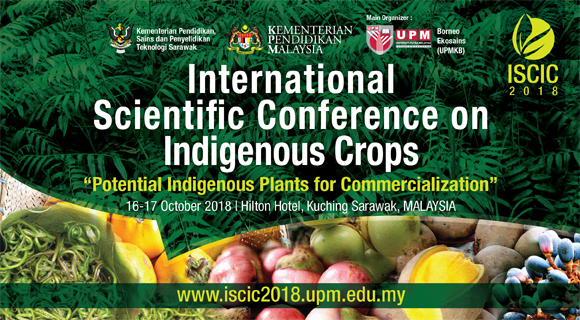Introduction
Indigenous plants have been exploited traditionally by various ethnics and indigenous groups. It was believed that the hunter-gatherers were the first to recognize the plants from their surrounding during the search for edible plants by trial and error. The knowledge on indigenous plants has been passed over generations by the elders from mouth to mouth, thus local people gain benefits tremendously from its use.
Indigenous plant can be defined as native plant species which originate from a region, or were introduced from other place from a long time through natural processes or human selection. Native people especially those living in the rural area depends heavily on the forest and endowed with deep knowledge on natural product. Local people includes indigenous crops not only in their daily consumption as source of nutrients, flavor, therapeutic but also source of income.
Nowadays, the indigenous crops remain underutilized for general population. It was commonly overlooked by developed population and noticed as low prestige and nutritionally inferior. Continued understanding of the native plant species, with the primary aim of managing them responsibly, will guarantee theirs ever indisputable usefulness and services to mankind as foods, medicinal, oils and fibers.
As natural resources, indigenous plants are also prone to mismanagement. Thus, multidisciplinary research in indigenous plants related fields is essential for advocating their increased utilization as commercial crops. Recognising the potential of indigenous plants as cultivated crop, proper and sustainable management is the way forward. These comprises of management and operations that are legal, economically viable, environmentally appropriate, and socially beneficial. Dissemination of knowledge and constant research is crucial to ensure sustainable development of indigenous crop that may benefits mankind, and the environment.
Realising the importance, Universiti Putra Malaysia Bintulu Campus supported by Ministry of Education, Science and Technological Research Sarawak have taken the initiative to organise the first ever International Scientific Conference on Indigenous Crops (ISCIC2018). The conference is generally intended to provide a platform for all stakeholders i.e. academics, scientists, industrial players, regulators and the public, to communicate with each other via knowledge sharing and critical discussion regarding all aspect of indigenous plants.
Objectives
- To highlight indigenous plants that can be grown and harvested for profit and subsistence.
- To provide a platform for all stakeholders to share their knowledge concerning indigenous crops.
- To promote linkages among stakeholders thus encouraging the development of indigenous crops.
Theme & Tracks
The first International Scientific Conference on Indigenous Crops (ISCIC2018) will highlight the theme, ‘Potential Indigenous Plants for Commercialization’ with four main tracks:
- Wild Indigenous Plant Sources
- Food from Indigenous Crop
- Domestication of Indigenous Plants
- Production and Commercialization of Indigenous Crops
Who should attend
The conference will consist of two main elements i.e. lectures delivered by invited speakers, and poster exhibition sessions. These sessions are open to all participants.
Researchers, academicians, students, plantation and forest managers, natural resources stakeholders, extension officers, national advisory agency officers, sociologists, economists, funding agency officers, managers involved in agro-industry, environment, science and engineering sectors, and policy makers.

